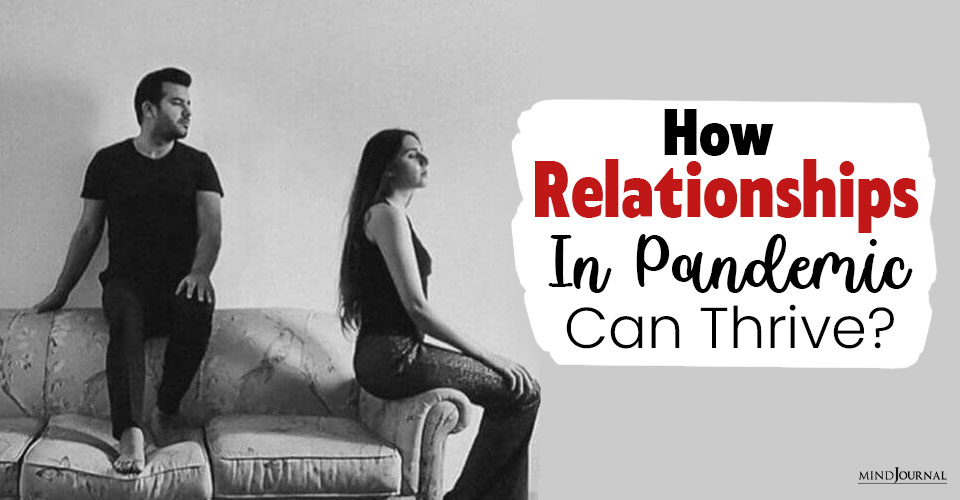How are your relationships in pandemic going? Being cooped up with your partner 24/7 can be overwhelming, no matter how much you love them. If you and your partner are getting on each other’s nerves, here’re some useful tips on how your relationships in pandemic can survive and even thrive.
Are you one of these couples who were finding it difficult to make time for each other, even used to fight for not being with each other enough? But, after the pandemic hits, it’s completely the other way round. Now, this extra togetherness is taking a negative toll on your relationship.
How couples can get through the coronavirus crisis.
If you are living with your partner during the coronavirus crisis, you might find yourself with more time together than usual. Being out of work, having your normal routine disrupted, or being fearful of getting ill, you might be more prone to stress and irritability. Sadly, reports of domestic violence have been increasing during the current pandemic.
You may be wondering “How can my partner and I get through this without driving each other crazy? How can we survive the ‘new normal’ without getting on each other’s nerves? Can we actually thrive during this difficult time?”
If you’re in a partnership where there’s been distance and conflict, this may be an especially difficult time. But even couples who are happy may find it challenging to be cooped up in the same space.
How The Relationships in Pandemic can Survive?
Here are some tips that might help your partnership survive, and even thrive—during this unusual time.
1. Acknowledge Your Need for Alone Time

Many of us grew up with the romantic notion that if we love someone, we should be unendingly happy and want to spend all our time together. We might believe that if our partner really loves us, they will relish spending every minute with us.
Love is not the same as enmeshment. It doesn’t mean merging with another person. Too much time together might suck the energy out of an otherwise beautiful and loving relationship. Healthy relationships need the right kind of boundaries in order to thrive. It’s natural to want time and space to feel our own energy apart from the partnership and to nurture ourselves in other creative ways.
Trees don’t grow as well when their roots are entangled. They don’t thrive in each other’s shade. Just as trees need space to spread out, we need the right amount of space to stretch out and blossom, which makes our coming together more rich and alive.
One person cannot meet all of our needs. In order to flourish, each partnership needs to find the right balance between being together and being apart.
Read: Time Alone (Chosen or Not) Can Be A Chance To Hit the Reset Button
Many people find it difficult to speak openly about their need to spend time with friends or nurture themselves apart from their primary relationship. A sad irony is that both individuals may experience similar needs, but conceal them because they’re afraid their partner might feel unwanted.
As one person put it, “It’s not that I’m trying to push away my partner. It’s just that I need time to do my artwork, exercise, and talk to my friends. Then I have more good energy for my partner.”
Working together to find a suitable balance might begin by having a gentle conversation that starts with something like “I love being with you and I need to balance that with time to be alone and to do other things that help me. How does that sit with you?” Expressing what feels “right” for us while also hearing what our partner needs may help us find a way to meet both of our needs as much as possible.
Those who live in a small home or apartment might find it especially challenging to find time apart. But perhaps you can both make it okay to be in your own space while sharing the same room. It might be something to work toward to feel safe and comfortable being in the same space without feeling obligated to interact.
Agreeing to have part of your dwelling where you can each have alone time to do your own thing, whether to just think, to read, or to listen to music (perhaps with a headset), or to call a friend might help you feel nourished and restored.
Of course, being with your partner is also (hopefully) restorative and nurturing, but having a life apart from your partnership can add richness to your relationship.
2. Creative Ways To Connect
Another thing to consider is finding new ways to be together. For example, asking if your partner would like a shoulder massage or foot massage might be a creative and intimate way to share energy together. Some people enjoy board games or taking walks around the block.
Cooking or gardening together can also be a creative activity for some couples. Meditating together can be a powerful way to connect in silence if that is something that appeals to you.

Read: How Your Brain Changes After Meditating for One Year
Understandably, many people like keeping up with the news during this challenging time. But you might want to consider whether you’re over-exposing yourself to unpleasant news, especially just before bedtime. Watching a movie, listening to music, or reading something together can be a creative way to chill out and stay connected.
You might want to balance out your psyche by adding some lightheartedness to your lives by watching comedy shows together, such as Saturday Night Live. You might consider me weird, but I enjoy watching old episodes of the Andy Griffith Show.
Finding a balance between being together and being apart is challenging for couples, especially these days. Having gentle, authentic conversations where you are each expressing what you need while hearing each other and being affected by each other, can help deepen intimacy and keep the relationship vital.
If you’re having difficulty during this trying time, remember that many psychotherapists and couples therapists offer teletherapy sessions, which might help you navigate your life and relationships with greater awareness.
Written By: John Amodeo Ph.D., MFT Originally Appeared On: Psychology Today


Leave a Reply